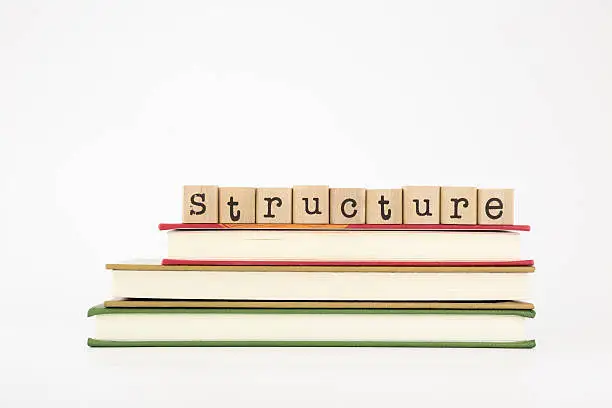How to Write a Thesis in Literature?
Thesis writing is the bread of Literature. All coursework begins with a thesis, and the writing of a thesis statement is the first step in an undergraduate student’s journey towards becoming a successful graduate—and even before that, it’s the first step in becoming an educated person. The importance of a thesis in literature cannot be overstated; it’s your chance to show your understanding of literature and also to demonstrate your ability as a writer.
Thesis in Literature is hard because you have to claim the book that is also an interesting statement on its own.
The most obvious parts of the book are boring as thesis statements; also, there’s often so much to say about the story that it can be hard to figure out what to leave out for the sake of brevity. It takes a lot of planning, but it’s not impossible.
Understanding of Thesis in Literature
Simply put, literature represents a language or people’s culture and tradition. Though many have tried, the concept is difficult to define; it’s clear that the accepted definition of literature is constantly changing and evolving.
For many, the word literature suggests a higher art form; merely putting words on a page doesn’t necessarily equate to creating literature. A canon is the accepted body of works for a given author. Some works of literature are considered canonical, and culturally representative of a particular genre (poetry, prose, or drama).
Works of literature, at their best, provide a kind of blueprint of human society. From the writings of ancient civilizations such as Egypt and China to Greek philosophy and poetry, from the epics of Homer to the plays of William Shakespeare, from Jane Austen and Charlotte Bronte to Maya Angelou, works of literature give insight and context to all the world’s societies. In this way, a Thesis in literature is more than just a historical or cultural artifact; it can serve as an introduction to a new world of experience.
Here are some tips on writing a thesis in literature:
1. Use a strong, debatable topic
2. Keep it short, simple, and clear
3. Use precise language
4. Be careful with pronouns (avoid “it”)
5. Make sure you’ve got enough evidence to support it
At its most basic, the thesis in literature is a fairly simple thing. It’s a statement of your position on the topic you’re writing about, and it often comes in the form of a question or a command. However, there are many different kinds of thesis statements that are used in different ways and for different purposes.
The thesis in literature can be an answer to a question asked in the paper, or it can be the question that the paper answers. Thesis statements are useful for framing your ideas and stating exactly what you will be talking about in your paper. They also help you focus on what’s important and steer clear of tangents. The thesis gives one sentence that clearly states your main idea (and sometimes it is more than one sentence). This is basic information every writer needs to know when writing a thesis.
Subparts on Writing a Thesis statement:
- To introduce your argument, you can start with a very general statement of your topic and follow it with a more specific statement about how you intend to approach and solve the issue. For example, “American literature has always been an outlet for the disenfranchised” is an introduction to a thesis in literature that might lead to a discussion of how women writers were able to express their voices through this genre.
- To state your argument, you can simply present your thesis as if it were a fact. Using the same example as before, “American literature has always been an outlet for the disenfranchised; however, the disenfranchised were not always women.” This is a way to acknowledge that there have been exceptions and to help your reader better understand why you are focusing on one social group at a time.
- To evaluate your argument, you can present both sides of your topic and choose which side is more compelling or convincing to you. Based on these opposing views, you can also state what makes them different.
Tone can greatly affect how you present your main and supporting points. Tone is the attitude or feeling a writer creates through his or her choice of words and sentence structure. You can use tone to:
- Introduce topics in an interesting way.
- Create an argument through stated facts, which can be easier to remember than a thesis statement.
- Convey a sense of urgency to your reader and make them want to know more.
By being aware of your options for tone when writing your thesis statement, you can ensure that you get the right tone for your paper and avoid any confusion for your readers.
Importance of Thesis in Literature
- The thesis in Literature is a sentence in the introduction that states what you will discuss in your essay. It is a claim that gets the reader’s attention and gives them an idea about what to expect. However, even though it only appears once, it is important to have a thesis statement for any type of essay that you write.
- Knowing if your entire argument will be based on facts or opinions is crucial. A thesis statement of this kind would look like:
- “In J.K Rowling’s Harry Potter series, Harry Potter is a strong character who overcomes many hardships.”
- If the main point of your argument will be based on facts and research, then you should use the following format:
- “Facts show that Harry Potter is a strong character who overcomes many hardships in J.K Rowling’s Harry Potter series.”
- Thesis in literature are very important because they allow students to focus on the topic of their essays. This makes it easier for them to structure their essays and ensure they’re getting their point across to the reader.
- Thesis statements also provide direction so students can determine how they should support their arguments with evidence from the text and outside sources. Students should avoid writing vague thesis statements because these will not help them focus on what the topic was clearly.












